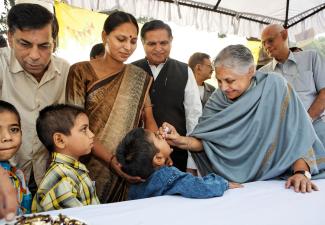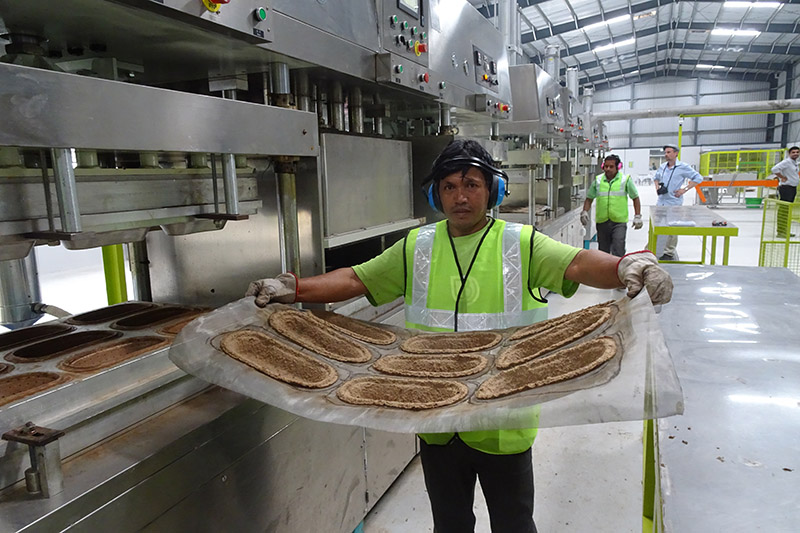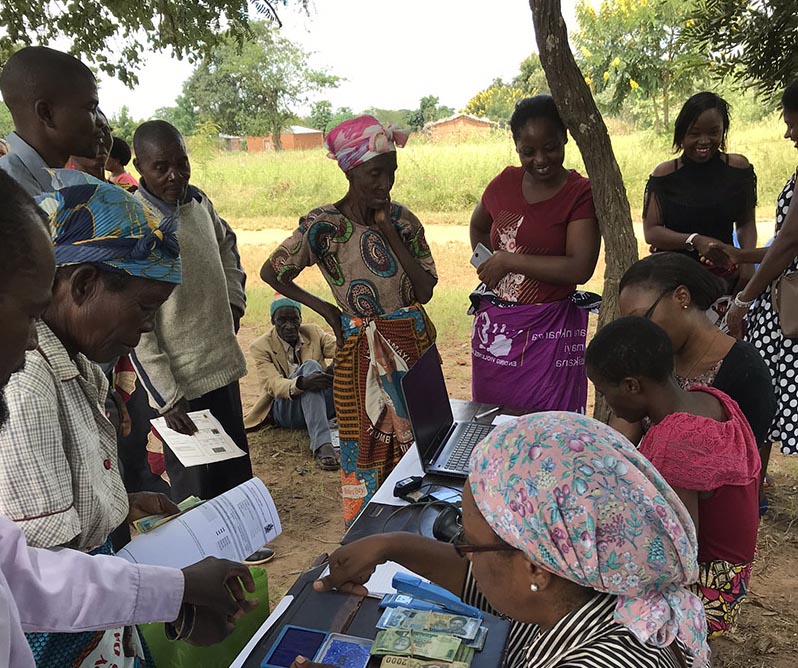Infectious diseases
“We need staying power”

An Ebola epidemic is spreading rapidly in West Africa. What does this tell us about the state of the health care systems in Liberia, Sierra Leone and Guinea?
First of all, it means that despite medical progress, infectious diseases still threaten to take the lives of many. The health care systems of the countries affected do not themselves have the capacity to promptly identify and prevent the spread of these diseases. To achieve this requires several steps to be taken: diseases must be diagnosed correctly and individual cases reliably reported to a central point. This would then form the basis for effective measures to be taken. Depending on the disease, treatment or vaccination is needed. In the case of Ebola, it is even necessary to isolate patients. All this is taking place in the three countries, but not to a sufficient extent, and there are a number of reasons for that. These include not only a chronic shortage of staff and the desperate state of the health infrastructure and indeed, the overall infrastructure, but also a lack of medical equipment and medicines, limited access to doctors and hospitals, and low confidence in public institutions among the population.
Presumably the legacy of the civil war also plays a role?
Yes, we know it takes a very long time for a society to regain its stability. That also has an effect on the health system, which is a sector affected by many factors. An unsafe water supply, for instance, means a greater risk of illness, and poor roads make it more difficult to transport patients. The Federal Ministry for Economic Cooperation and Development (BMZ), on whose behalf we work, prioritises strengthening health systems. But that requires a great deal of perseverance and time because weaknesses can occur at very different points. It is therefore important to consider all framework conditions with the utmost care already during the project design phase.
In what ways does KfW, on behalf of the German Federal Government, contribute to the strengthening of health systems?
We have a variety of approaches and tools for supporting our partners within the public and private health services in developing countries. We finance the expansion of the health infrastructure, for example by building hospitals and modernising medical equipment. We also promote the development of insurance systems and their preliminary stages so that the financing of health services does not cause families to fall into poverty and the costs do not act as a barrier to using those services.
Furthermore, we support the partner countries in the health education of their populations. Within the framework of social marketing programmes, such education focuses on e.g. ways that people can protect themselves against infection by HIV/AIDS or other sexually transmitted diseases. Branded condoms and contraceptives are advertised and sold via private traders throughout the country at subsidised prices. For the Federal Ministry of Education and Research, we help to finance the development of new medicines, vaccines and diagnostic tools. To this end, we promote product development partnerships.
Can the development of medicines not simply be left to the pharmaceutical industry?
No, because we are dealing with market failure here. One example among many others is leishmaniasis, which is endemic mostly in Africa and Asia and causes terrible skin lesions and organ failure. To date there is no adequate treatment and no vaccine. The average incomes in those parts of the world affected by leishmaniasis are so low that there is a need, but no effective commercial demand. That is why we support a product development partnership for the development of medicines. In turn, this partnership maintains contact with scientists, pharmaceutical companies, authorities and the like. Only when all relevant parties are involved can medical drugs be developed successfully and then also be introduced at financeable prices into health systems, for the care of patients.
Are you perhaps spreading yourself too thin with your various approaches?
No, on the contrary, we deliberately pursue a variety of approaches in order to cope with the complexity of this diverse sector. We do our best to ensure that the approaches complement and are optimally integrated with each other. This enables us, for instance, to promote cooperation among a large number of different players, ranging from international organisations through national governments and local authorities right through to the final users. To take an example, KfW cooperates on behalf of the BMZ with the international Gavi Vaccine Alliance and the East African Community. This cooperation strengthens the vaccination programmes in East Africa, while the global strategies of international organisations are implemented at the regional level through support from KfW. Gavi was founded in 2000 as an international partnership involving state and commercial actors. It has proven a considerable success, with 440 million children vaccinated thus far and about six million lives saved. We know the players and the challenges. That makes us a valuable partner.
Is immunisation the best way of combating infectious diseases?
It is not as simple as that. Immunisation is one of the most effective and cost-efficient health improvement measures in existence. Today the world is free of smallpox, and we hope to have eradicated polio soon. Between 2000 and 2007, immunisation reduced the number of deaths from measles by nearly 80 percent. But appropriate vaccines are not available for all diseases. For example, the prevalence of HIV/AIDS and malaria will have to be reduced by other means. Education and changes in behaviour are important. While a vaccine for tuberculosis does exist, it is not sufficiently effective. Here too, progress is needed urgently.
Reversing and halting the incidence of the three terrible diseases you just mentioned is one of the UN’s Millennium Development Goals. Has there been any progress?
Yes, very much so. Today, 54 percent fewer children in Africa die of malaria than previously. There are significantly fewer new HIV/AIDS infections. Another piece of good news is that now more AIDS patients in developing countries are treated using retroviral drugs than seemed possible in 2000. But we cannot rest on our laurels. Throughout the world, around 3.5 million people fall victim to infectious diseases every year, most of them in the poorer regions. Children are at particular risk. To remedy this, every aspect of the health systems will have to be strengthened, and that requires staying power. //
Andrea Holzäpfel is a public health expert at KfW Development Bank










